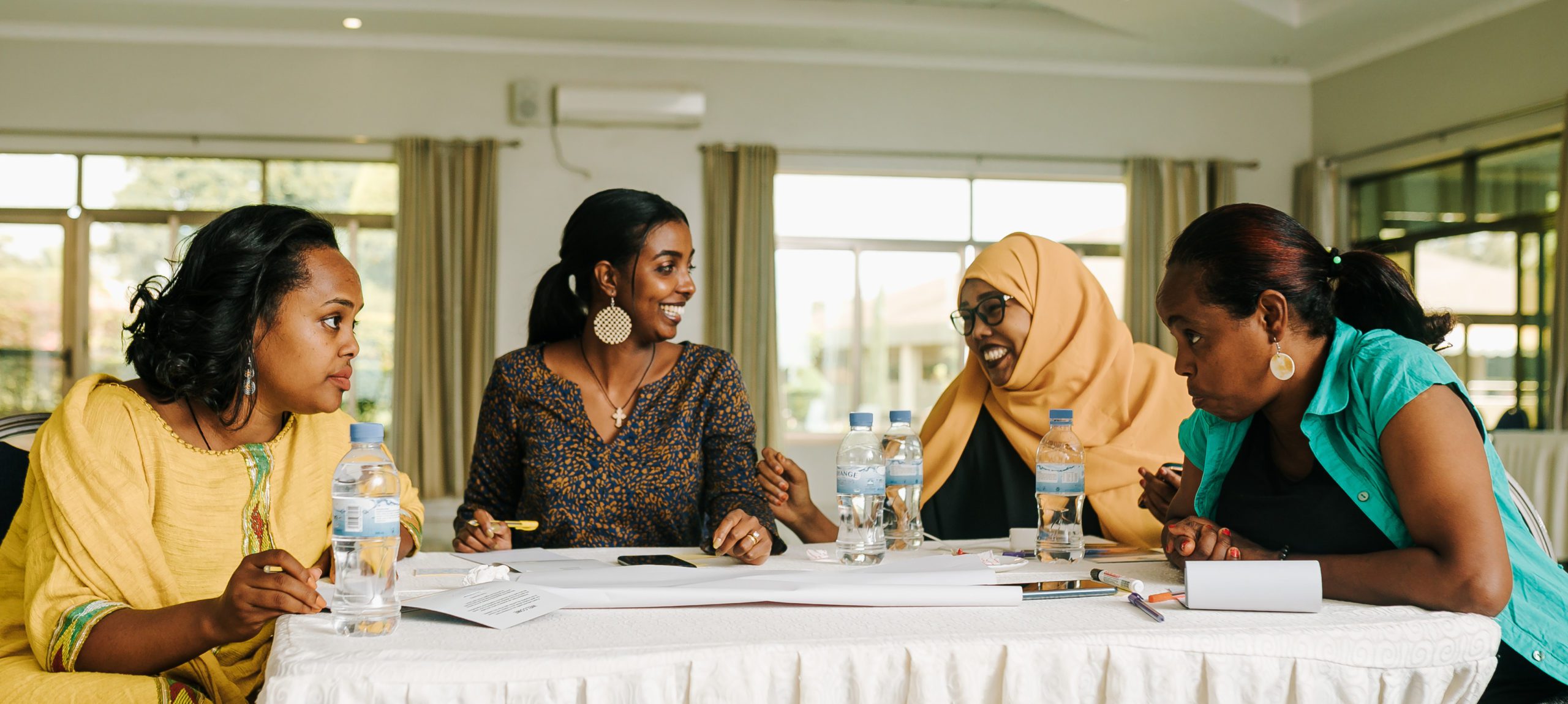What it Takes to Advance Local Ownership and Localisation in Peacebuilding
There is still a long way to go before the power asymmetries in the peacebuilding field between Northern and Southern peacebuilding actors are dissolved, but what does it take to change this? Peacebuilding experts from Sub-Saharan Africa share their points of view.
Recent online consultations with peacebuilding experts from Benin, Cameroon, Côte d’Ivoire, Democratic Republic of the Congo, Libya, Mali, Nigeria, Senegal, South Sudan, and Sudan, show that despite a positive change in the donor-recipient relationship over the past years, local peacebuilding actors remain in an inferior position to international donors.
The peacebuilding experts described the relationship in various ways: International donors looking down on local actors, lacking respect towards local actors, or treating them as employees rather than partners on equal footing.
So what does it take to change that? In this blog, we highlight the innovative suggestions from the peacebuilding experts for creating a donor-recipient relationship on equal footing.
Rethinking How We Talk About and Support Local Peacebuilding Efforts
Participants suggested two main ways to improve how we think about and support local peacebuilding efforts.
1. Updating Terms and Concepts:
- Change the Language: Instead of using the term “localisation,” which can seem vague and gives the impression that local agency depends on international donors’ localisation efforts, we should focus on “local ownership.” This means emphasising the role of local people in leading peacebuilding efforts.
- Define “Local” Clearly: There should be a common understanding of who counts as “local.” This could be done by mapping out who is involved in peacebuilding locally and deciding which groups should get support from outside sources. Creating consortia of local peacebuilders working together can help with this.
2. Improving Communication Between Local and International Actors:
- Donor Behaviour: International donors should be clear about their supportive but less central role in peacebuilding efforts. They should highlight the skills and achievements of local peacebuilders rather than just their needs. Donors could also work on strategies that present both local and international actors as equal partners working together to address security issues.
- Local Efforts: Local peacebuilders should promote their skills and achievements publicly. They could run campaigns to showcase what they can contribute to peacebuilding, rather than focusing on what they need.
Promoting Local Leadership Early On
To boost local peacebuilders’ influence from the start the experts suggested to
- Involve Local Experts: Involve local knowledge and expertise right from the planning stages of peacebuilding projects to better address local security challenges.
- Local Decision-Making: Ensure that local peacebuilders have leadership roles in international NGOs and decision-making bodies that control peacebuilding funds. This inclusion can be further enhanced by having a localisation expert in leadership teams.
Improving Collaboration Between Donors and Local Peacebuilders
- Create Inclusive Spaces: Set up shared spaces where local and international actors can work together to plan and monitor peacebuilding projects. This collaboration should continue throughout the project, including developing joint monitoring and evaluation plans.
- Widen Local Engagement: Donors should expand their reach by mapping out local peacebuilders, offering training on international standards, giving local groups more time to develop necessary skills, and committing to direct partnerships with a range of local organisations.
- Local Networks: Local peacebuilders could form consortia to handle interactions with international donors more effectively. Networking among local actors will help create stronger connections with donors.
Reworking the Funding System
- Institutional Funding: Shift towards providing institutional funding, which can help local organisations offer competitive salaries and maintain independence. This type of funding can also support effective monitoring and evaluation and allow organisations to focus more on their work rather than fundraising.
- Flexibility in Support: Donors should be flexible in supporting peacebuilding efforts in countries facing international sanctions to avoid situations like in Sudan, where sanctions have diverted funds away from essential peacebuilding work. Flexible funding would also allow local peacebuilding actors to adapt their programs to rapidly changing security or political conditions.
Strengthening Local Networks
- Collaborate, Don’t Compete: Local peacebuilders should focus on cooperating rather than competing. Professional local NGOs and grassroots organisations should work together to strengthen their influence over donors. Agreeing on certain principles can also help ensure that international donors commit to supporting local peacebuilders more consistently.
Navigating Local Government Challenges in Peacebuilding
When working on peacebuilding efforts in conflict-affected areas, it’s important to adjust strategies based on the local political environment.
In More Open Contexts:
- Localisation Advisors: In countries where the government is more open, appointing advisors to work with different government ministries can help boost support for local peacebuilding efforts. This can strengthen local involvement in peacebuilding projects.
In Authoritarian Contexts:
- Protecting Peacebuilders: In countries with repressive governments, the focus should be on protecting local peacebuilders from government crackdowns. It’s crucial to ensure they have the financial and technical resources they need.
- Peer Support: Encouraging peacebuilders to share experiences and strategies, both within their country and internationally, can help them better navigate challenging political environments.

